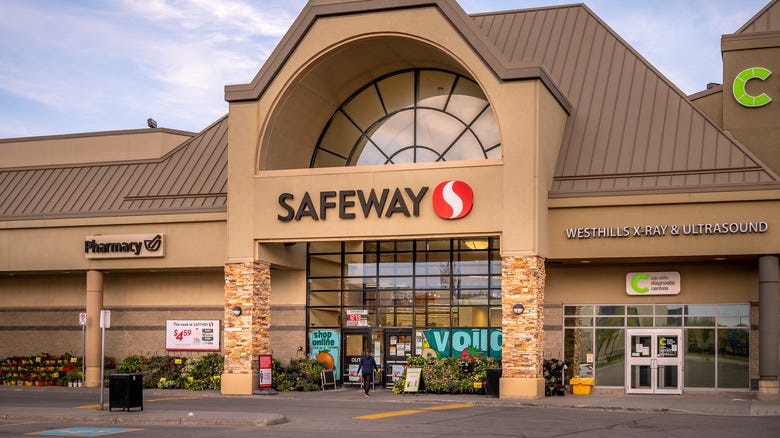07/21/2025: Safeway's Staff Pharmacists Are Not Supervisors
An election bar prevented unionization of private prison guards.
Safeway Inc., 19-RC-365310 (Regional Election Decision)
In this July 2025 decision, the NLRB Regional Director addressed whether staff pharmacists at a Safeway pharmacy in Covington, Washington are supervisors under Section 2(11) of the Act. The Regional Director first rejected Safeway's argument that the petition couldn't be processed due to the Board lacking a quorum, noting that Regional Directors maintain authority to process representation cases during such periods.
The key issue was whether staff pharmacists supervise pharmacy technicians and assistants. The Regional Director analyzed four potential supervisory functions:
Assignment: Staff pharmacists don't make schedules, approve time off, or routinely direct technicians' work.
Responsible direction: No evidence showed pharmacists are held accountable for technicians' performance or mistakes.
Hiring: Pharmacy managers, not staff pharmacists, make hiring decisions for technicians and assistants.
Discipline: Staff pharmacists neither issue discipline nor effectively recommend it; correcting errors doesn't constitute discipline.
Finding no supervisory authority, the Regional Director directed an election with two voting groups: professionals (pharmacists) and non-professionals (technicians/assistants). The professional group would vote on inclusion with non-professionals and both would vote on representation by the Pharmacy Guild.
Significant Cases Cited
Oakwood Healthcare, Inc., 348 NLRB 686 (2006): Established standards for determining supervisory status regarding independent judgment and responsible direction.
Croft Metals, Inc., 348 NLRB 717 (2006): Clarified that supervisory authority requires evidence of accountability and prospect of adverse consequences.
Kentucky River Community Care, Inc., 532 U.S. 706 (2001): Defined the three requirements for supervisory status.
CNN America, Inc., 361 NLRB No. 47 (2014): Established that collaborative decision-making is insufficient to show supervisory status.
Golden Crest Healthcare Center, 348 NLRB 727 (2006): Held that job descriptions suggesting supervisory authority need evidence of authority in practice.
Asset Protection & Security Services, LP, 28-RM-355622 (Regional Election Decision)
This case involves two representation petitions filed by employers Asset Protection & Security Services, LP and Paragon Professional Services, LLC (collectively "the Employers") after the International Brotherhood of Teamsters Local 745 ("the Union") requested recognition as the exclusive collective-bargaining representative for a unit of detention officers, security specialists, and transportation officers at an ICE facility in El Paso, Texas.
The petitions were filed on November 26 and December 2, 2024, following the Union's recognition request on November 18, 2024. A hearing was held on December 10, 2024, to determine whether an election bar precluded the Board from conducting an election.
The Regional Director found two separate grounds for dismissing the petitions:
An election bar existed under Section 9(c)(3) of the National Labor Relations Act, which prohibits elections within twelve months of a previous valid election in the same unit. A decertification election involving the same unit had been conducted with ballots counted on November 12, 2024, establishing a bar until November 12, 2025. Since the current petitions were filed more than 60 days before the end of this 12-month period, they were subject to dismissal.
Even without the election bar, the Board would be prohibited from certifying the Union under Section 9(b)(3) of the Act. This section prevents the Board from certifying a union that admits non-guard employees to membership as the representative of a unit of guards. The parties stipulated that the Union represents and admits non-guard employees, including food service workers at the same ICE facility.
The Employers argued that they filed the petitions pursuant to the Board's decision in Cemex Construction Materials Pacific, LLC, which requires employers who receive recognition requests to either recognize the union or promptly file a petition to test the union's majority status. However, the Regional Director determined that this decision does not override the statutory election bar.
The Regional Director concluded that no question concerning representation could be raised due to the election bar, and that even without this bar, it would be inappropriate to certify the Union as the exclusive bargaining representative of the guard unit under Section 9(b)(3).
Significant Cases Cited
Vickers, Inc., 124 NLRB 1051 (1959): Established that petitions filed more than 60 days before the end of the 12-month statutory period will be dismissed.
Cemex Construction Materials Pacific, LLC, 372 NLRB No. 130 (2023): Held that employers must either recognize a union or file an RM petition to test the union's majority status when faced with a recognition request.
Watkins Construction Co. Inc., 332 NLRB 828 (2000): Determined that in mail-ballot elections, balloting is completed when votes are tallied at the ballot count.
E-Center, 337 NLRB 983 (2002): Established that the Act does not permit circumvention of the election bar rule.
Burns Security Services, 300 NLRB 298 (1990): Discussed Congress's concern about conflicts of interest if guards were represented by unions that also represented non-guard employees.
Rescission of Certain Operations-Management Memoranda, OM 25-08, (OM Memo)
This NLRB Operations-Management memo from July 17, 2025, rescinds several previous guidance memoranda effective immediately. The rescissions include memos on representation case procedures, workplace dignity and respect compliance, collective bargaining collaboration, immigrant worker protections, and COVID-19 related bargaining obligations. Some rescissions are tied to Executive Order 14168 issued on January 20, 2025, while others are being rescinded pending future guidance or because COVID-19 is no longer a public health emergency.

